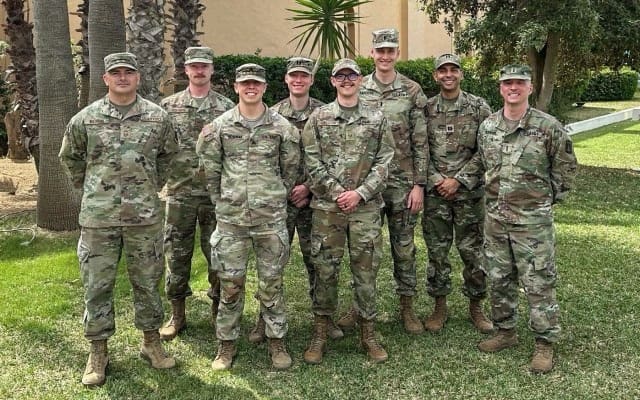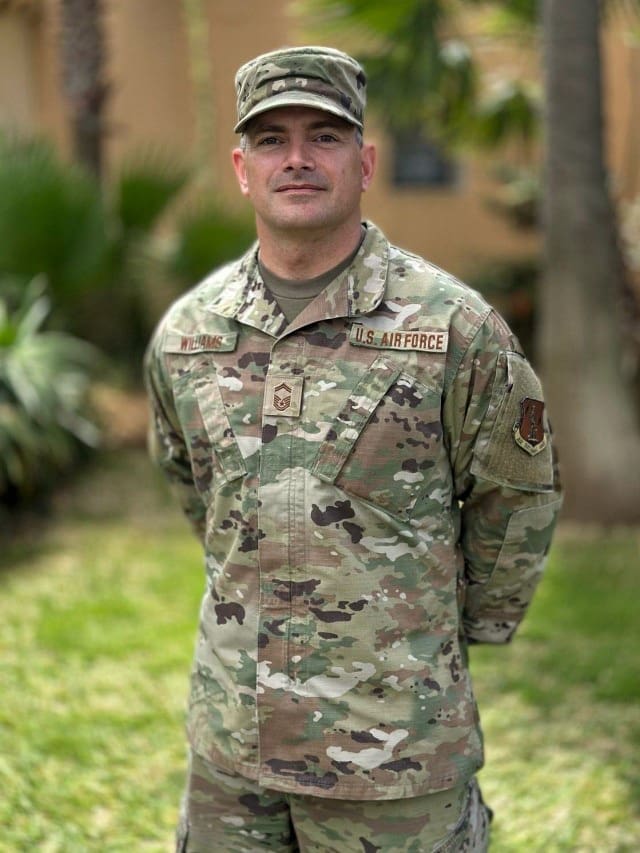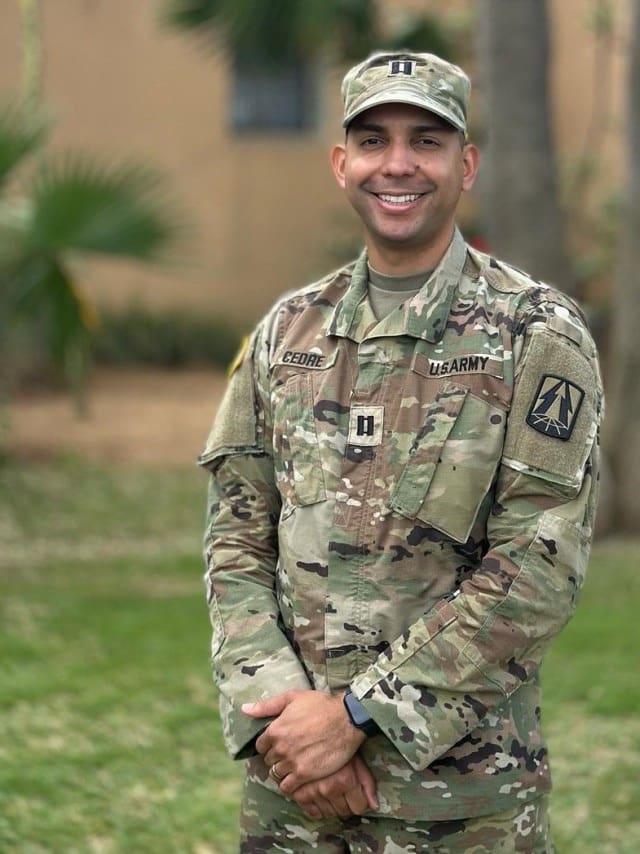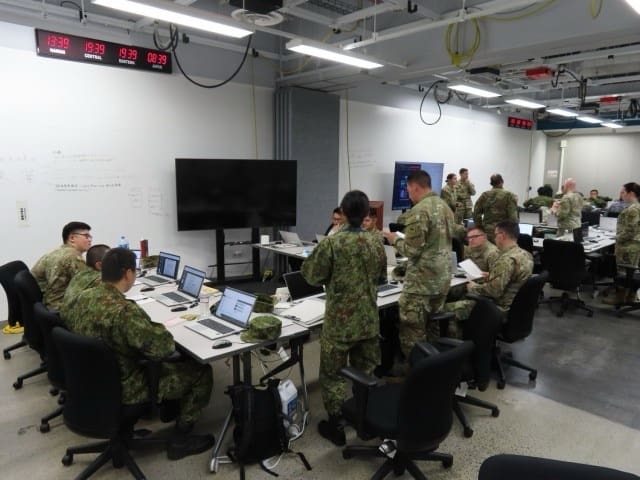
TUNIS, Tunisia – Cyber capabilities are a fundamental function of modern warfighting. During African Lion 2025 (AL25) U.S. Cyber Command Soldiers joined Wyoming National Guardsmen and Tunisian Armed Forces cyber teams for an academic exchange to enhance the protection of critical infrastructure, enable secure communication and streamline battlefield coordination.
This first-ever joint, combined exchange in Tunisia, showcased the capabilities of cyber professionals to adapt, innovate and tackle the challenges posed by increasingly sophisticated adversaries.
“Cyber operations are vital in warfighting as they protect and disrupt digital networks, ensuring secure, rapid and resilient communication for strategic decision-making and battlefield coordination,” said U.S. Air Force Senior Master Sgt. John Williams, a warfighter communications superintendent assigned to the 153rd Communications Squadron, 153rd Airlift Wing, Wyoming Air National Guard.

Whereas offensive capabilities are often overlooked, the academics-style course highlighted the dual impact of cyber readiness on modern warfare. This was especially significant considering most people tend to think of this domain from a defensive perspective, such as cybersecurity and protection.
“Cyber enhances warfighting capabilities by ensuring command and control systems are protected and functioning when you need them the most,” said U.S. Army Capt. Jean-Carlos Cedré, a cyber operations officer assigned to U.S. Army Reserve Cyber Protection Brigade (ARCPB), 335th Signal Command (Theater), U.S. Army Cyber Command, and officer in charge of the AL25 Tunisia cyber team.

The defensive cyber portion of the course focused on incident response techniques, as well as computer forensics and frameworks designed to protect against malicious threats from adversaries. Offensive cyber scenarios simulated cyberattacks to identify vulnerabilities, seeking to gain any competitive battlefield advantage.
“From an offensive perspective, cyber can also enable battlefield enhancements by providing windows of opportunity that help tip the battle in favor of our warfighters,” said Cedré.



Joining ARCPB in Tunisia, Wyoming Air National Guard’s cyber team greatly contributed to the mission, bringing significant experience and expertise forged through a 21-year National Guard Bureau State Partnership Program (SPP) with the Tunisian Armed Forces.
SPP military exchanges have enhanced knowledge in aviation, engineering, and medical best practices, including readiness and warfighting capabilities such as cyber proficiency. These engagements foster interoperability, build trust and ensure both forces are better equipped to tackle emerging threats.
“My experience working with the Tunisian Army was eye-opening,” said Cedré. “Their experience, eagerness to learn and natural abilities provided a platform for us to build upon, leading to a highly valuable training event.”
The cyber team from Wyoming agreed.
“Collaborating with the Tunisian cyber team was both insightful and rewarding. Their expertise and dedication are complemented by their exceptional hospitality and professionalism,” said U.S. Air Force Staff Sgt. Thomas Schoening, an information technology network operations specialist, assigned to the 153rd Communications Squadron, 153rd Airlift Wing, Wyoming Air National Guard.
With defensive and offensive cyber skills enhanced, this multinational team is ready to showcase a domain the joint force cannot afford to overlook on an increasingly sophisticated battlefield.
“This training, along with future collaborations, will further solidify our partnership and cultivate highly skilled cyber professionals prepared to meet the challenges of future conflicts,” concluded Williams.
Exercise African Lion 2025 is more than a test of technical prowess; it shows the power of multinational collaboration in the face of evolving cyber threats. By pooling resources, expertise and innovations, these cyber warriors are setting the stage for a resilient and secure future.
About African Lion
AL25 is set to be the largest annual military exercise in Africa, bringing together over 50 nations, including seven NATO allies and 10,000 troops to conduct realistic, dynamic and collaborative training in an austere environment that intersects multiple geographic and functional combatant commands. Led by SETAF-AF on behalf of the U.S. Africa Command, AL25 takes place from April 14 to May 23, 2025, across Ghana, Morocco, Senegal, and Tunisia. This large-scale exercise will enhance our ability to work together in complex, multidomain operations—preparing forces to deploy, fight and win.
About SETAF-AF
U.S. Army Southern European Task Force, Africa (SETAF-AF) prepares Army forces, executes crisis response, enables strategic competition and strengthens partners to achieve U.S. Army Europe and Africa and U.S. Africa Command campaign objectives.
MAJ Joe Legros




















































































































